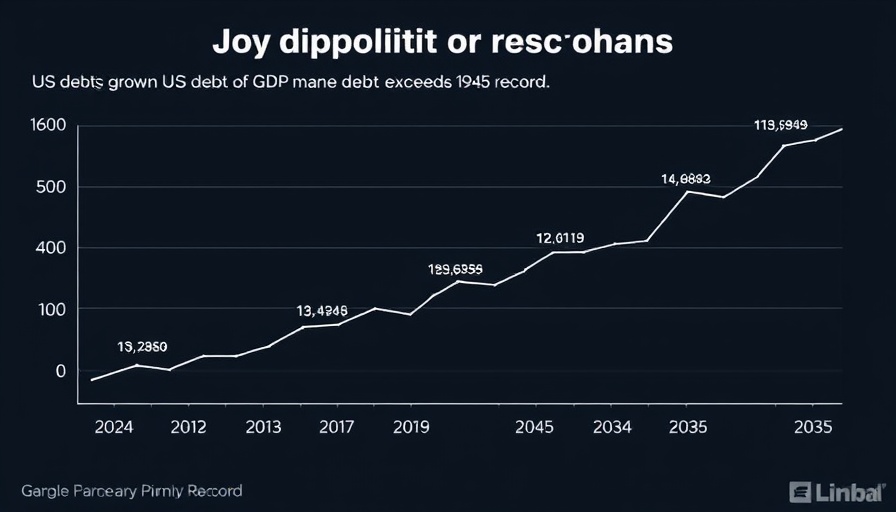
The Unprecedented Downgrade of the US Credit Rating
In a surprising turn of events, the United States has lost its coveted top credit rating after a downgrade from Moody’s, marking a pivotal moment in the country's financial landscape. This shift not only raises important questions about the nation's fiscal policies but also signals potential changes in investment strategies for both individuals and businesses alike.
The Impact on Investors and Everyday Americans
The downgrade could have widespread ramifications for everyday Americans and investors alike. As borrowing costs may increase due to perceived higher risks associated with US debt, consumers could see rising interest rates on loans, mortgages, and credit cards. For investors, the need to reassess portfolio diversification strategies will be paramount. Exploring resilient avenues like bonds and securities with lower volatility may offer a buffer against impending market fluctuations.
Current Economic Trends and Their Implications
Despite the downgrade, many analysts argue that the US economy shows signs of resilience, highlighted by recent job growth and consumer spending. However, the financial community remains cautious, weighing concerns over national debt levels and inflation against strong corporate earnings. This juxtaposition exposes an opportunity for financial planners to pivot strategies that embrace both growth and risk management as key pillars of portfolio health.
Revisiting Financial Policies: An Opportunity for Improvement
Such a significant downgrade opens doors for discussions around fiscal reforms and monetary policies. Financial advisors may find value in educating clients about adjustments in wealth preservation tactics and long-term care planning, allowing for smoother transitions during uncertain economic conditions. Through proactive financial advising, individuals can prepare themselves for future volatility while focusing on their long-term goals.
What Should Investors Do Now?
Investors should embrace a proactive outlook about their financial futures. In light of the downgrade, assessing risk profiles becomes vital. Investment strategies may need a refreshed focus on passive income strategies and tax-efficient investing, which could safeguard wealth against inflation. For instance, the appreciation of real estate investment and strategic allocation into mutual funds may present worthwhile alternatives.
Actionable Insights: Key Takeaways for the Financially Savvy
Here are a few actionable insights for readers navigating the post-downgrade landscape:
- Review Asset Allocation: Given the credit downgrade, revisiting your asset allocation strategy to ensure a balanced approach between equities and fixed income can empower more resilient wealth management.
- Focus on Comprehensive Wealth Advising: Collaborating with a financial advisor who emphasizes comprehensive wealth advising can lead to improved financial outcomes, particularly in uncertain environments.
- Diversification is Essential: The ability to diversify investments across different asset classes will offer protection against market shocks and enhance overall portfolio performance.
Looking Ahead: Future Financial Stability
While uncertainty looms following the downgrade from Moody’s, there lies a potential for innovation and growth within the financial sector. This pivotal moment could catalyze a wave of prudent reforms aimed at improving fiscal health. As households and businesses devise their financial strategies, the lesson from this downgrade is clear: preparedness, adaptability, and informed decision-making can carve paths toward economic stability and independence.
Call to Action: Be Prepared for Financial Changes
In these times of change, it’s vital for individuals, families, and businesses to reassess their financial plans. Whether you need to refine your investment strategy or explore risk management techniques, reaching out to a financial advisor can lead to a more secure future. Don't let the uncertainties dictate your financial health—take control today!
 Add Row
Add Row  Add
Add 




 Add Row
Add Row  Add
Add 

Write A Comment